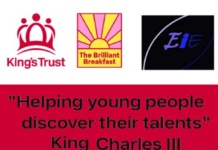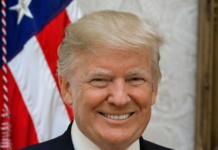Britain pledges to fight criminal gangs exploiting innocent men, women and children from West Africa

The Prime Minister Theresa May has announced that Britain is embarking on a worldwide crusade against modern slavery. The new cabinet taskforce will work collaboratively with law enforcement agencies across the world, to track and stop these pernicious gangs who operate across borders and jurisdictions, Mrs May said. Nigeria and other West African countries are the most likely places of origin for victims, others are Albania, Vietnam and Romania but in 2013, 90 were UK nationals.
Most victims are brought into Britain for the purposes of forced criminal exploitation such as maids, servants, housekeepers, child-care givers, those caring for the elderly, the ill, cheap labour and sex. Most victims of slavery are four times less likely to be acknowledged as victims if they are non- European and children are often deliberately targeted for their vulnerability according to report by Antislavery International. Britain will be using over £33 million from the aid budget to create a 5-year International Modern Slavery Fund focused on high-risk countries, where victims are regularly trafficked to the UK.

Prime Minister Theresa May said, “These crimes must be stopped and the victims of modern slavery must go free. Just as it was Britain that took an historic stand to ban slavery two centuries ago, so Britain will once again lead the way in defeating modern slavery and preserving the freedoms and values that have defined our country for generations.”
“This Government is determined to build a Great Britain that works for everyone and will not tolerate modern slavery, an evil trade that shatters victims’ lives and traps them in a cycle of abuse.
“Last year I introduced the world-leading Modern Slavery Act to send the strongest possible signal that victims were not alone and that those responsible for this vile exploitation would face justice.
“We must do more and the historic £33.5 million funding will allow us to go even further to support victims. The government is planning to setup the first ever task force to end modern slavery.”
Only 100 British companies have paid to sign up to a new voluntary slavery database, designed to fund an anti-trafficking helpline, organisers has revealed according to Thomson Reuters Foundation.
The number is a tiny fraction of around 12,000 UK businesses targeted to join the Transparency in the Supply Chain (TISC) data bank, that allows firms to confidentially admit when they find their suppliers using enslaved workers, its directors said.
Funds raised by TISC are destined to cover operational costs of a victims’ support helpline run by the anti-trafficking charity Unseen, but signing up is optional.
Britain’s 2015 Modern Slavery Act only requires businesses with a turnover of 36 million pounds ($47.43 million) to disclose in annual reports what action they have taken to ensure their supply chains are free of slave labour.
“We urge companies to join the database. For a nominal amount of money it meets requirements for firms wanting to do more than just comply with the law,” TISC co-director Jaya Chakrabarti told the Thomson Reuters Foundation.
The Prime Minister Theresa May in an article she wrote for the Sunday Telegraph on how her government will lead the way in defeating modern slavery said, “It is hard to comprehend that such sickening and inhuman crimes are lurking in the shadows of our country. But the most recent estimates suggest that there are between 10,000 and 13,000 victims in the UK alone and over 45 million across the world.
From nail bars and car washes to sheds and rundown caravans, people are enduring experiences that are simply horrifying in their inhumanity.
Vulnerable people who have travelled long distances believing they were heading for legitimate jobs are finding they have been duped, forced into hard labour, and then locked up and abused. Innocent individuals are being tricked into prostitution, often by people they thought they could trust. Children are being made to pick-pocket on the streets and steal from cash machines. Others, like a 7-year-old who was found and rescued in Wood Green, are held as domestic slaves, while some children are raped, beaten and passed from abuser to abuser for profit.
One woman I met had come to England as a student but was forced into prostitution, imprisoned in a house in south London and regularly abused, including being threatened at gunpoint. When she finally escaped to north London, she was picked up by another gang that systematically exploited her and raped many others in a squalid high-street brothel.
Commenting on Theresa May’s announcement, director of Anti-Slavery International Aidan McQuade said: “Anti-Slavery International is delighted to welcome Theresa May’s renewed drive to tackle modern slavery in Britain. It is heartening that she has brought to her Premiership the same commitment to this issue that she showed as the Home Secretary.
“When she pushed the Modern Slavery Act through Parliament she recognised that the Act alone was not a solution to all problems but a new beginning, and a lot remains to be done.
“Establishing a special task force, more training for police, particularly on victim identification and protection, and more inter-agency co-operation are all positive and much needed measures.
“Protection and support of those who are affected by slavery needs to be at the centre of all these efforts. In addition slavery must be recognised as a fundamental issue of international trade and international development.
“The advice that the ministerial task force draws upon will be an important indicator in what direction and Britain’s fight with slavery will go. Towards this end Anti-Slavery International is delighted to offer our 177 years of experience on fighting slavery in the UK and internationally. “
A case study
Mary (Not her real name) was trafficked to Britain from West Africa when she was 14, forced to work as a domestic worker and locked up in a house by a relative. When two years later she finally escaped and was formally identified as a victim of trafficking, she was placed in in a semi-independent accommodation with little support.
There she befriended a man. In spite of his increasing violence towards her she became pregnant. She was still only a child herself. The baby was put on the child protection register from birth because of the ongoing situation of domestic violence.
Mary received very little support from the authorities and felt she had few options. She thought her social workers had little understanding of her situation and judged her for entering a relationship with a violent man.
It was only after receiving support from one of the charity organisations working with trafficked children Mary felt that she was finally listened to, and she was able to build up some confidence in her life and parenting skills. She finally had someone on her side to help her start making safe choices and start building a life for herself and her child.

Home Secretary Amber Rudd and Safeguarding Minister Sarah Newton on 1 August 2016 met with campaigners to outline this new government action to end slavery. Charities and campaigners at the forefront of efforts to end modern slavery in the UK included Barnados, the Salvation Army, Medaille Trust, Human Trafficking Foundation, Anti-Slavery International, Hestia and End Child Prostitution, Child Pornography and Trafficking of Children for Sexual Purposes (ECPAT UK).
African Voice joins campaigners to end the barbaric act of human trafficking and modern day slavery.
Follow us on Twitter:@African Voice2










